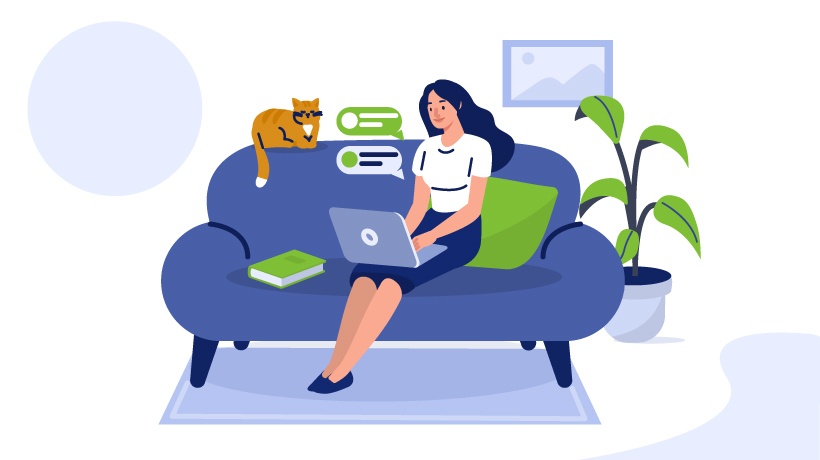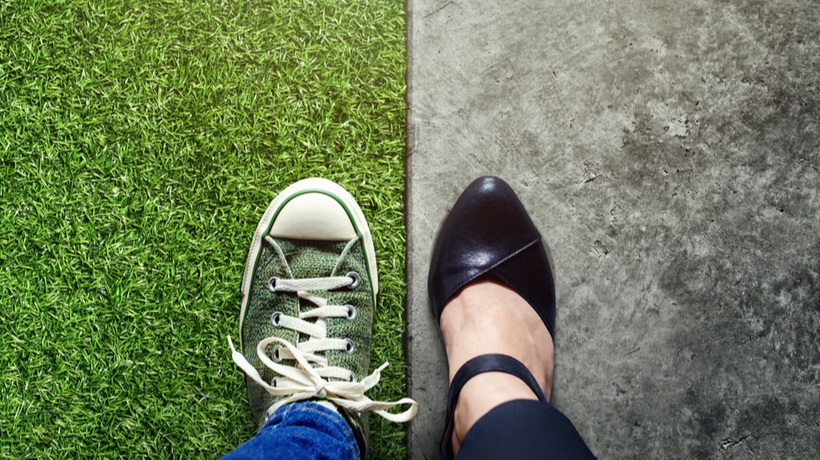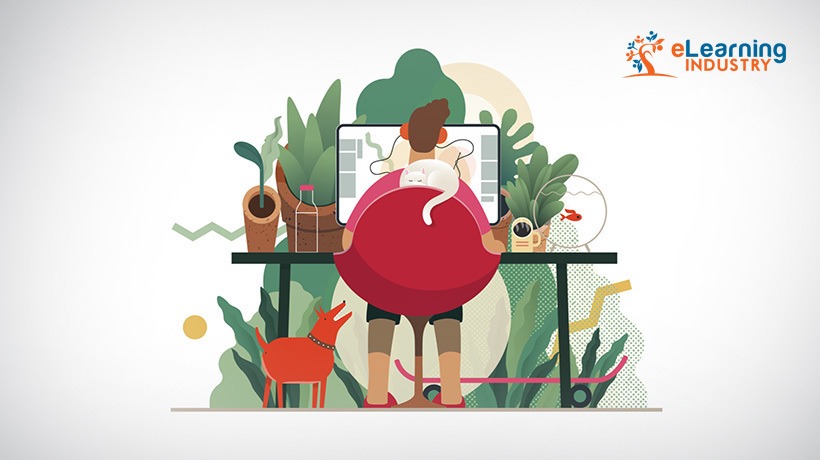How To Avoid Cabin Fever When Working From Home
A lot of people are now working from home. This can lead to feelings of isolation. Also described as "cabin fever" or going "stir crazy" or "self-isolation."
The good news is that you are not alone. The Google Trends graphs below show how many people are typing into Google "cabin fever," "stir crazy," and "self-isolation." The answer: Lots more since the coronavirus. Not surprisingly. Let’s talk about what it is and how to overcome it.


What Does The Expression Cabin Fever Mean?
The origin is unknown. The term cabin fever is a phrase used to describe being cooped-up in one place for too long, needing to get out, and/or wanting to be with other people. The belief is that the American pioneers used this phrase in the 1900s. After they had spent long winters on the Great Plains, miles from any neighbors, they would describe themselves as having "cabin fever." Earlier than this, in the 1800s, the term was used to describe typhus fever, but the connection is unclear.
What Causes It?
Long periods in one place or not being able to interact with other people.
What Is It Like?
The dictionary definition for cabin fever is: "Irritability, and similar symptoms resulting from long confinement or isolation indoors during the winter."
Is Cabin Fever A Real Disease? What Is The Disease In Cabin Fever? What Is The Cabin Fever Virus?
“Cabin fever is not like a psychological disorder, so I wouldn’t say there’s any sort of official definition of it,” said Vaile Wright, a psychologist and director of clinical research and quality at the American Psychological Association. “It may not be a real condition, but the feelings it’s associated with are. It involves a range of negative emotions and distress related to restricted movement: irritability, boredom, some hopelessness and even, behaviorally, restlessness and difficulty concentrating. Those would be the constellation of symptoms one might expect if they were feeling that way.”
In our opinion, it is no less real than a disease. It is not a disease. It is a state of mind that can manifest itself into psychological and physical problems if not kept in check.
What Are The Symptoms Of Cabin Fever? What Does Cabin Fever Look Like?
There are many symptoms that might be a sign of cabin fever. Obviously, each person is an individual and will exhibit a different set of symptoms. To know if you have cabin fever is about auditing yourself. Have you changed your circumstances recently? (i.e., You are now at home more, so did your symptoms begin when you began working from home?) If yes, then it is likely that you are feeling stir crazy because of the change. This is a list of symptoms that people do experience with cabin fever:
- Restlessness
- Lethargy—wanting to sleep all day, frequent napping, difficulty waking up
- Sadness or depression/withdrawn
- Trouble concentrating
- Lack of patience—you snap at people
- Food cravings—maybe junk food for comfort
- Decreased motivation
- Social isolation
- Hopelessness
- Changes in weight
- Inability to cope with stress
- Struggle to focus on one thing at a time
- Not wanting to start new projects
What Do You Do When You Have Cabin Fever? How Do You Treat Cabin Fever? How Do You Beat Cabin Fever At Home?
The first step is to realize that you have cabin fever. It might be something else. If your circumstances have changed, for example, you have started working from home, then it is likely you are feeling self-isolated.
The second step is whether you want to do something about it. This is because when you feel like this, it is easier to stay as you are—sleepy, uneasy, and unhappy. It's much easier than to start to "get yourself out of it." It all starts with you. Maybe you need to ask someone for help. A phone call with a friend might be all that you need.
- Step 1: Do you have cabin fever?
- Step 2: Call a friend, share how you feel, and ask for their support in using some of these options below.
The options after calling a friend are about you helping you, with the support of a friend to encourage you.
Working From Home Infographic
For tips to help you adjust to working from home, take a look at the infographic. Click the image below for the extended, higher-resolution PDF:
5 Tips To Reduce Cabin Fever
The following are 5 options you can take to help yourself feel better and put cabin fever behind you:
1. Avoid Conflict
At a time when we feel vulnerable, avoiding conflict is the right thing to do. Right because we might choose "fight or flight." And to fight might make things worse. Avoid or flight is the best option when you feel this way.
Thomas-Killmann created the conflict mode instrument model. In essence, it shares that there are 5 ways we deal with conflict on two axes: how assertive we want to be and how cooperative. The 5 modes are competing, collaborating, compromising, accommodating, and avoiding. Whilst avoiding is less cooperative, it might be the better choice when you feel as you do.

Action: What conflict situations have you got coming up? How can you avoid them?
2. Get Out Of The House
- During the lockdown
Go into the garden. There is a lot written about the positive effects of the sun on your face.
- After the lockdown
A walk will help. Getting away from it all. Don’t take your phone. Just you. Try to appreciate the world around you. Make a list in your mind of 10 things that you are grateful for.
Action: Stop. Get out of the house. Leave your phone behind.
3. Structure Your Day
A routine of what you do will help. The problem comes when we have too much time on our hands. Not spare time because you will have a demanding job. More, that you have time to think and you get in your own head too much. This is dangerous.
Some people get their energy from being with people, others from being alone. A good friend of mine once said to me, "I like nothing more than a weekend away reading and being by myself." I told my daughter and she said, "I couldn’t think of anything worse!" She gets her energy from being around people and hates time by herself.
If you are in a group of people that need people, then you are more likely to feel cabin fever. Having structure will help because it is one less thing to think about. You need to just get on, follow the structure, and do. This will allow you to not think too much.
Action: Choose 3 times of the day: when you start work, when you eat lunch, and when you finish. Plus, have a list of things to get done that day.
4. Have Something To Look Forward To
A holiday. A weekend. Friends coming round. An event. Something that makes you smile when you think of it.
This will help. Lots of people need something on the horizon to focus on. This is because they can think: "When this is all done, I have that to do."
Action: Arrange or book an event that makes you smile.
5. You Don’t Need To Be A Buddhist To Meditate
When we think of meditating, it conjures up images of a Buddhist monk on a hillside, legs crossed, and humming. This is not that. We might instead call it mindfulness or mental weightlifting—looking after our mental health. "Our meditation" is about taking a moment for you to think. But here’s the challenge: We don’t want to get inside our own heads too much, so we need to give our brain a job. The job is to focus on our breathing. This two-minute video will explain.
Action: Give the monkey brain a job—meditate for a few minutes.
What Is The Opposite Of Cabin Fever?
Agoraphobia. The term cabin fever typically refers to feeling isolated, away from people, and alone. It is possible that agoraphobia (ag-uh-ruh-FOE-be-uh) is the opposite. This is a type of anxiety disorder in which you fear and avoid places or situations that might cause you to panic and make you feel trapped, helpless or embarrassed.
Is It Bad To Stay Home Every Day? Can Staying Indoors Make You Sick? Does Staying Indoors Cause Anxiety?
The answer is…it depends on what you think. This is because everyone is different. Some people like to be alone a lot, others do not. If you are happy being at home or indoors every day, that is what you like. If you are not, then that is ok too. It has to be whatever is right for you. The only challenge is to find what is right for you.










